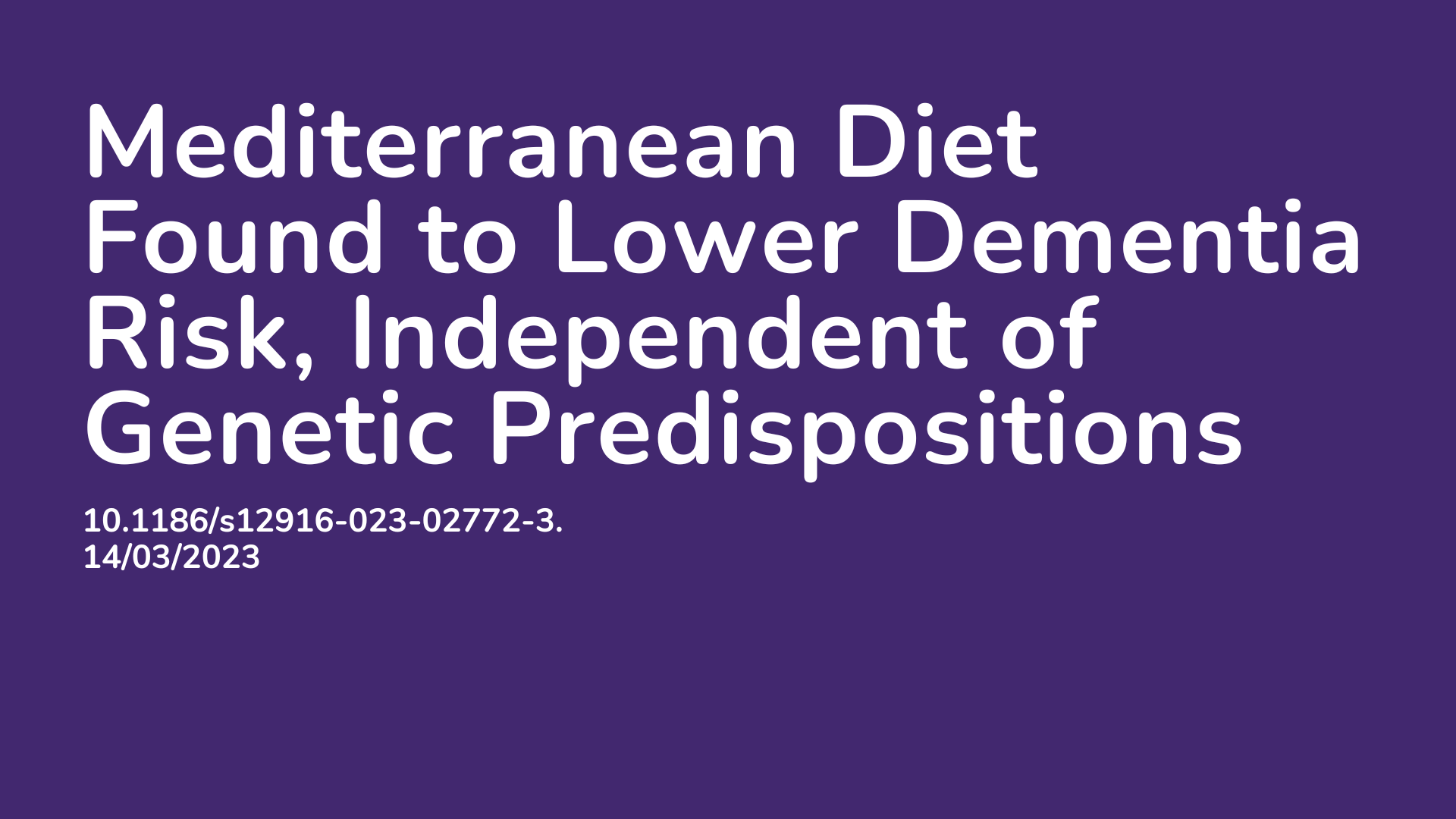Summary:
Preventing dementia is a public health priority worldwide due to its high prevalence and the associated financial burden on health systems. Researchers are constantly working to identify modifiable risk factors such as diet. Healthier dietary patterns such as the Mediterranean diet has been proposed as a strategy to slow cognitive decline in numerous studies, however evidence that it plays a protective role against dementia risk is inconsistent. This paper applied statistical analysis to Mediterranean diet consumers and risk of dementia, accounting for genetic predisposition as well. The results showed that regardless of genetic predisposition, a higher adherence to the Mediterranean diet was associated with lower dementia risk. Given that genetics are often given more weight than modifiable risk factors, this research provides a new direction but also hope that there are lifestyle tools within our control to stop the rising burden of dementia.
Abstract:
Background: The identification of effective dementia prevention strategies is a major public health priority, due to the enormous and growing societal cost of this condition. Consumption of a Mediterranean diet (MedDiet) has been proposed to reduce dementia risk. However, current evidence is inconclusive and is typically derived from small cohorts with limited dementia cases. Additionally, few studies have explored the interaction between diet and genetic risk of dementia. Methods: We used Cox proportional hazard regression models to explore the associations between MedDiet adherence, defined using two different scores (Mediterranean Diet Adherence Screener [MEDAS] continuous and Mediterranean diet Pyramid [PYRAMID] scores), and incident all-cause dementia risk in 60,298 participants from UK Biobank, followed for an average 9.1 years. The interaction between diet and polygenic risk for dementia was also tested. Results: Higher MedDiet adherence was associated with lower dementia risk (MEDAS continuous: HR = 0.77, 95% CI = 0.65–0.91; PYRAMID: HR = 0.86, 95% CI = 0.73–1.02 for highest versus lowest tertiles). There was no significant interaction between MedDiet adherence defined by the MEDAS continuous and PYRAMID scores and polygenic risk for dementia. Conclusions: Higher adherence to a MedDiet was associated with lower dementia risk, independent of genetic risk, underlining the importance of diet in dementia prevention interventions.
Article Publication Date: 14/03/2023
DOI: 10.1186/s12916-023-02772-3.



